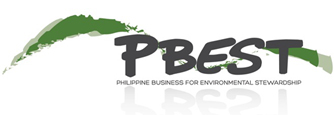Published: 27 May 2014
The government is pushing for a bill fixing the revenue-sharing scheme for mining concessions at a rate of either 10 percent of the gross revenues or 50 percent of the net revenues, according to the Department of Finance (DOF).
Finance Undersecretary Jeremias Paul said the Mining Industry Coordinating Council (MICC) has already agreed the government’s share should either be 10 percent of the gross revenues or 50 percent of the adjusted net mining revenue, whichever is higher.
“I think we have agreed on everything, and the revenue-sharing scheme is still the same. We want the government’s share should be mandated to be either 10 percent of gross revenues or 50 percent of the adjusted net mining revenue, whichever is higher. Then there’s a kicker which will increase the government’s share based on a certain ratio,” Paul said.
Paul said the mining industry opposes the revenue-sharing scheme that the Executive branch will lobby before Congress as a priority measure.
“But we don’t have to agree with the industry. It’s not agreeable to them, but the battle will be in Congress,” he said.
Paul said the draft bill will be submitted soon to Malacañang and expected to be deliberated in Congress in June after President Aquino’s State of the Nation Address.
Under Executive Order 79, no new mineral agreements shall be entered into until a law rationalizing existing revenue sharing scheme is enacted and has taken effect. The MICC is tasked under the said order to craft the bill on revenue sharing.
As mandated by Republic Act 7942, or the Mining Act of 1995, the government’s share in mineral production sharing agreements (MPSAs) shall be the excise tax on mineral products as provided for by the Tax Code; while the share of the government in other mineral agreements shall be negotiated between the government and the private contractors.
In a financial or technical assistance agreement (FTAA), the government’s share shall be, “among other things, the contractor’s corporate income tax, excise tax, special allowance, withholding tax due from the contractor’s foreign stockholders arising from dividend or interest payments to the said foreign stockholder in case of a foreign national and all such other taxes, duties and fees as provided for under existing laws.”
Meanwhile, environmental advocates support the multisectoral transparency initiative seeking full disclosure of taxes and other payments by oil, gas and mining companies to governments.
The Philippine Business for Environmental Stewardship (PBEST) backs the Extractive Industries Transparency Initiative (EITI), saying the EITI standards will be valuable to all stakeholders as this will ensure equitable resource management, fair accounting of how much taxes were paid and how taxes were spent.
PBEST lead convenor Prof. Dindo Manhit said accurate accounting is needed to determine how the government and the private sector should be sharing the benefits from the country’s rich natural resources.
Manhit said host communities of extractive industries will know how much revenue from mining companies should be used for various development projects.
An EITI multistakeholder group was formed in 2013 to draft the country’s first EITI Report.
The EITI Report must pass the assessment of the EITI Secretariat in order for the Philippines to be considered a compliant country adhering to the highest standards of transparency.
The EITI multistakeholder group is composed of the government, civil society and the extractives companies. President Aquino committed to implement the EITI Standard in July 2012, making the Philippines a candidate country.
To be considered a full member, the Philippines-EITI Multi-Stakeholder Group is drafting the first EITI report which must pass the assessment of the EITI Secretariat.
The report will detail the tax payments of companies in the oil, gas and mining sectors to the government.
Assistant Secretary of the Department of Finance Teresa Habitan, also the Philippines’s national coordinator of the initiative, earlier said there are 25 firms in the large metallic mining, petroleum and gas industries that have pledged to allow the Bureau of Internal Revenue to release the tax payments of the various companies.
The country’s first EITI report is due for submission at the end of 2014.
